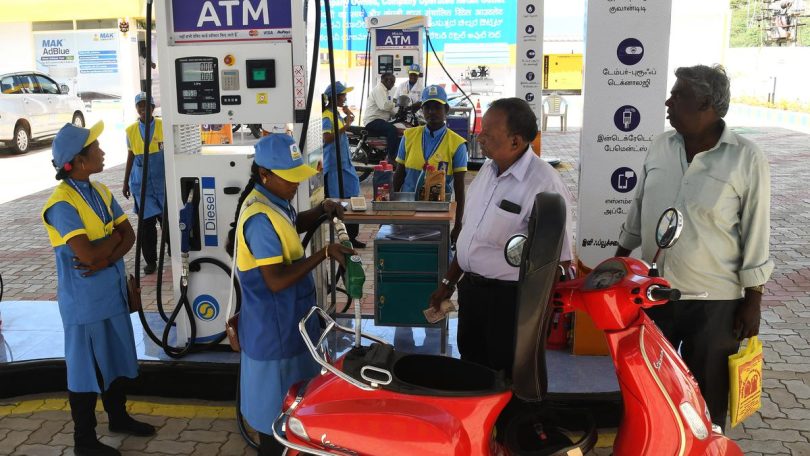[ad_1]

Private refiners were also making windfall gains by sourcing Russian oil at discounted rates and re-exporting them to other markets. File
| Photo Credit: The Hindu
The government has extended export curbs on petroleum products that compel oil refiners to sell a significant chunk of their export volumes in the domestic market, as per a notification issued on April 1 by the Directorate General of Foreign Trade (DGFT).
These restrictions had been first put in place in July 2022, along with the levy of windfall taxes on the profits of oil producers on crude oil, petrol, diesel and Aviation Turbine Fuel (ATF), amid a surge in international oil prices after the Russia-Ukraine conflict broke out. Private refiners were also making windfall gains by sourcing Russian oil at discounted rates and re-exporting them to other markets.
Domestic oil producers sell their output to local refineries at international parity prices and were making windfall gains, and with petrol, diesel exports “becoming highly remunerative, it has been seen that certain refiners are drying out their pumps in the domestic market,” the Finance Ministry had noted at the time.
Also read | Centre thinking of bringing petroleum products under GST
“The exporter is required to submit a self – declaration to the concerned Customs authority at the time of export confirming that 50% of quantity mentioned in the Shipping Bill has been/will be supplied in the domestic market during the relevant financial year,” the DGFT notification dated April 1 stated. A slightly lower commitment of 30% of exports to be supplied in the Indian market has been set for diesel exporters.
While exports to Bhutan and Nepal are excluded from the calculations of outbound shipments under this norm, 100% Export Oriented Units as well as firms located in Special Economic Zones have also been left out from these quantitative restrictions.
“Such exporters are also required to file a quarterly return to the Ministry of Petroleum and Natural Gas,” as per the DGFT notification, which doesn’t specify a sunset date for these provisions.
At the retail level, Indian petrol and diesel prices have remained frozen since May 2022, when the government had cut the excise duty on both fuels amid high global oil prices. Global prices have subsided from last year’s highs and have been in the range of $75-$80 a barrel in recent weeks.
According to an estimate by JM Financial Limited, with oil prices at $75 a barrel, Indian oil marketing companies make a profit of ₹11.1 per litre of diesel and ₹8.7 per litre of petrol at current retail prices.
[ad_2]
Source link








